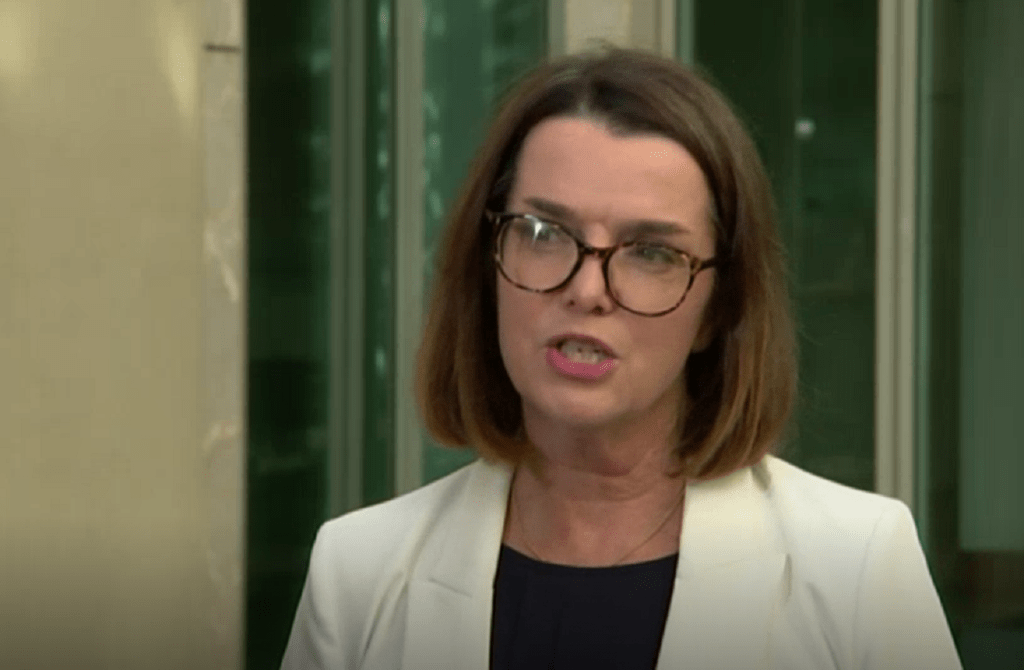Around this time last year, as we were all plunged into lockdown, I went on the ABC to talk about one of my favourite bugbears: domestic democracy. Or, more precisely, our lack thereof.
Even before COVID-19, Australian women did 2.3 more hours of unpaid domestic labor per day than men.
As we all took to our homes, men included, I chirped on cheerfully about how the experience could make all that so-called “invisible” work women do visible — maybe it’s invisible because of that theory men don’t “see” the washing, or laundry or maybe even the children… but I digress. The experience could prove eye opening, I mused, and potentially life changing.
“For some families, men will have their eyes opened and they’ll prove more willing to take up some of that slack,” I said.
Sadly, it didn’t take long for me to put a pin back in my little grenade of optimism. Earlier this year, the Bureau of Statistics released a survey into the household impacts of COVID-19 showing that while men did more childcare and unpaid domestic work during the pandemic than they did the same time last year, women still did more. And women still did the lion’s share of the heavy lifting at home.
I know. It’s depressing.
It is a well-known saying amongst gender equality geeks that without a revolution for men at home, there can be no revolution for women in the workplace. That’s why the OECD has calledthe unequal distribution of unpaid labor the most important gender equality issue of our time.
And that’s not hyperbole. Most agree.
In a survey conducted by Women Deliver ahead of the Generation Equality Forum, a global gathering for gender equality convened by UN Women and co-hosted by France and Mexico that kicked off in March and culminates with a meeting in Paris in late June, the “unequal distribution of unpaid care, domestic work and parental responsibilities” was cited by respondents as the first or second biggest cause of gender inequality in 13 of the 17 countries surveyed.
Yet, despite that strength of feeling, we’re stuck in the mud. Both here in Australia and around the world.
A 2019 report released by Men Care, a fatherhood campaign working towards childcare parity in 45 nations, found that the unpaid care gap has decreased by just seven minutes over the last 15 years and at the current rate of change it will be another 75 years before women as a group achieve domestic democracy.
So, what are we going to do about it here in Australia? If you were hoping to see something substantive to spur domestic democracy in next week’s budget, don’t hold your breath.
What’s needed is reform of Australia’s now decade old parental leave policy, which is one of the most unequal in the world in terms of the time offered men and women. In Australia, paid parental leave encourages a single “primary carer” who is eligible for 18 weeks at minimum wage. The vast majority of that leave (99.5 percent) is, therefore, taken by mothers who are deemed the “primary carer”. Fathers only get two weeks of dedicated partner leave, again paid at minimum wage.
But there won’t be anything in the budget to address that. Nothing, nada.
How do I know that?
Because Anne Ruston, the Social Services Minister and now also the dedicated Minister for Women’s Safety, told us so. In early April, the same day the newly convened taskforce on women’s safety and economic security met at Parliament House, Ruston ruled out any changes to the paid parental leave scheme saying a more ambitious plan would “put a brake on the economy”.
This, despite new research from Marian Baird of the University of Sydney Business School saying something many of us have known for ages: the current and less “ambitious” scheme is a lemon. Okay, she said that somewhat more diplomatically.
“Short secondary carer leave sets normative standards of fathers as ‘supporters’ rather than recognising substantive involvement in care,” said Baird.
“Consequently, the changes do not promote gender-egalitarian sharing of parental leave,” added Baird. “While the introduction of the government scheme was a ‘giant leap’, the 10 years since have seen modest ‘baby steps’ towards greater gender equality in the availability and potential use of paid parental leave.”
And reform is not on the table despite the fact that the lifetime earnings gap between men and women who have children is about $2 million, according to The Grattan Institute, and that earnings gap is significantly driven by the so-called “chores gap” at home, which forces women to work part time or take longer periods of time out of paid work.
Put simply, ruling out changes to Australia’s paid parental leave scheme so far in advance of the budget was an enormous missed opportunity.
Annabel Crabb’s Quarterly Essay, Men at Work: Australia’s Parenthood Trap, chronicled how different countries with the right parental leave policy (including a ‘use it or lose it’ provision and salary replacement rates for leave) transformed men’s behaviour and increased men’s uptake of parental leave in a very short period of time: Iceland from zero to 90 percent in ten years; Norway from 2.4% to 70% in 4 years; Germany from 5-34% in 7 years; and Quebec (the most comparable example for Australia, given its comparable approach to social welfare) from 21.2% to 53.6% in roughly 13 years.
And evidence from around the world shows that fathers who take a significant period of parental leave when their baby is born are more likely to be more involved on caring and other housework years later.
Next week we’ll hear a lot about how the Morrison government’s so-called “women’s budget” did or didn’t deliver for women across a whole range of issues, including childcare, safety, and economic security.
But please spare a thought for this significant issue, paid parental leave reform, that didn’t even get a look in. And ask why.
Kristine Ziwica is a regular contributor. She tweets @KZiwica


